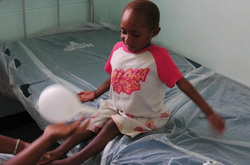- Home
- ABOUT US
- Recent News
-
Our Stories
- Balikbayan Boxes
- Nor-Cal Bus Arrives in El Salvador
- Supplies save lives in Nigeria
- Samuel's new wheelchair
- Zest4Kidz helps Ugandan children
- A swingset brings joy to children in the Dominican Republic
- The wheelchair that changed a family's life
- The tumor weighed 46 pounds...
- The story behind Upon This Rock Medical Center
- El Salvador orphanage gets a van!
- Leapingstone ... more
- MMI brings supplies to tribe
- 100th shipment heads to Liberia
- An update from Ngandu
- Good Samaritan's Clinic ... more
- Joy as the container arrives
- Philippines shipment largest so far
- Cupboard was bare ... more
- Sewing machines send message of love and support
- Supplies headed to Kurdistan
- Dr. Glenn Geelhoed in Chico
- Loading for our shipment to El Salvador
- Toys arrive in Haiti ... more
- Clinic in Nigeria gets help from Project S.A.V.E.
- Laproscopic supplies Ecuador ... more
- 42 Wells ... more
- Surgical outreach helps hundreds
- A shipment arrives in Sierra Leone
- A lesson in patience and perseverance
- Overwhelmed with joy and amazement
-
More Stories...
-
Story Archive
>
- Ngandu, and another miracle
- American Samoa says "thank you!"
- Dr. Marath in Kurdistan
- Dos de Mayo Peruvian Mission
- Maria's fight for life
- Band of Brothers
- Another shipment heads to Belize
- Christmas comes in January
- Tboli supplies arrive!
- The container arrives in Sudan ... more
- Togo and Burkhina Faso
- Update from Nairobi
- Food and supplies reach Ethiopia
- My heart just sank, and then ...
- A letter of thanks from BBH
- Holding back tears...
- Tanzania shipment includes well supplies...
- Kudjip Nazarene Hospital
- Nurse Vicky Graham Mission
- SAVE supplies save life in Zambia
- Blood Source continues to give and give
-
Story Archive
>
- Videos
- Recipients
- Contact/Donate
- Recent News
- Recent News

